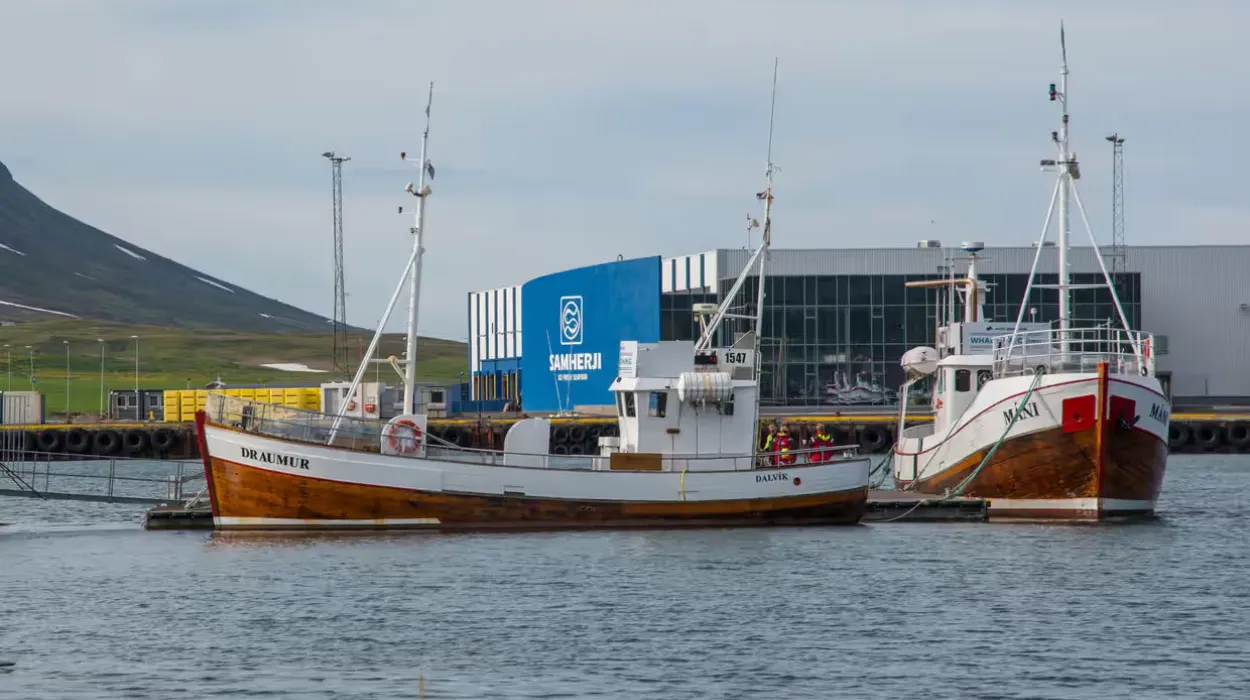London (Parliament Politics Magazine) – The Samherji fishing company from Iceland won its case against an artist over a fabricated apology regarding the company’s involvement in Namibia’s major corruption scandal. On Thursday, the High Court in London ruled in favor of Samherji without needing a trial.
The decision came after a September hearing in London, where Samherji sued Oddur Fridriksson also known as ODEE, for intellectual copyright violations and malicious falsehood after the artist published a fraudulent public apology in May 2023 on the website he developed which used Samherji’s logo and design.
The Fishrot scandal was exposed through a cache of 30,000 leaked documents posted by Wikileaks in November 2019 by a former Samherji employee in Namibia.
These documents reveal email conversations between Samherji employees, revealing that the company paid millions in bribes to senior Namibian politicians and officials in exchange for horse mackerel fishing quotas.
Samherji has firmly denied bribery accusations, and the 10 Namibian officials have asserted their innocence, despite being arrested for more than four years.
This case reached Namibia’s high court at the end of 2023.
At a hearing in September, Samjerhji argued that the website was created to mislead users and violated its copyright.
The company urged the judge to rule in its favor during the hearing in September.
In response, Fredrickson said that if the court ruled against him it would be unlawful to restrict his freedom of expression.
He further labelled the website as a piece of “culture jamming” effort to provoke public discussion, mentioning The Yes Men’s 2004 hoax in which they posed as Dow Chemical’s spokesperson in a live BBC interview.
Then Judge Paul Teverson ruled against Fridiksson, stating that he had, “no real prospect at trial of successfully defending the claimant’s claims”.
Teverson wrote in the ruling, “I consider that this claim ought to be disposed of at this stage without the costs of a trial”.
He added, “The defendant’s artwork has been performed. His hoax has taken place”.
ODEE developed an artwork titled We’re Sorry in 2023, which included a fake UK-registered website that replicated Samherji’s official site but featured the title of the artwork in bold text on the website’s homepage.
The second part of the piece was the phrase “WE’RE SORRY” painted on a wall at Reykjavik Art Museum in Iceland. The last element was a press release titled “Samherji Apologizes, Pledges Restitution and Cooperation with Authorities” which ODEE sent to 100 media outlets in 20 countries.
Some text of the press release published by ODEE, “We at Samherji would like to issue a formal apology for our involvement related to the Fishrot scandal. We acknowledge the severity of the allegations against us, which include corruption, bribery, and neocolonialism. These actions have undermined Namibia’s governance and deprived the country of vital revenues for health and education”.
It went on, “We admit to using facilitation fees to enable corrupt financial transactions, extracting profits from Namibia, and paying minimal taxes”.
Andra Matei, a free speech lawyer representing ODEE told the media that she was not shocked by Thursday’s judgement and has not decided if she will make a plea.
She said, “This is not the end. The purpose of the artwork apologizing was to put a spotlight on corporate responsibility – and also to highlight freedom of expression for artists. Regardless of the outcome of the trial, the purpose of the artwork has been served and elevated by Samherji and this case”.
Samherji’s CEO, Thorsteinn Mar Baldvinsson, after Thursday’s judgement said he was satisfied with the result.
He stated, “We were forced to take legal action to protect our trademark when all other lenient resolutions were rejected. The ruling clearly distinguishes between legitimate artistic expression and the misuse of a registered trademark. This judgment must be a matter of serious consideration for the academic institutions that gave their blessing to obvious trademark violations under the guise of artistic expression”.
ODEE’s lawyer said that they are “swimming against the tide”.
She added, “We never expected this to be easy or simple. We are up against corporations with millions and millions of dollars and legal systems that have historically not paid attention to the crucial role that artists, such as ODEE, play in the strengthening of democracies. This is why – while we are disappointed – this decision has only furthered out resolve to take this fight all the way to the very end”.
This week London-based Institute of Public Policy Research (IPPR) asked Samherji to explain its involvement in the Fishrot scandal.
Graham Hopwood, the IPPR’s director said five years after the scandal was exposed, Namibians impacted by the incident have yet to receive proper compensation for the harm they suffered.
He issued a statement “As a result, the IPPR calls for Samherji to make full redress to directly affected and impacted individuals and communities for the disruption and devastation inflicted on their lives as a result of Fishrot”.


